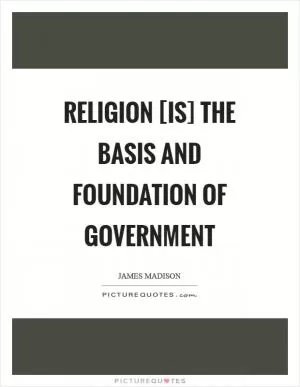The loss of liberty at home is to be charged to the provisions against danger, real or imagined, from abroad

The loss of liberty at home is to be charged to the provisions against danger, real or imagined, from abroad
James Madison, often referred to as the "Father of the Constitution," was a staunch advocate for individual liberties and limited government. He believed that the loss of liberty at home could be attributed to the provisions against danger, real or imagined, from abroad. Madison's views on this issue were shaped by his experiences during the American Revolution and his observations of the dangers of unchecked government power.Madison understood that in times of crisis, governments often seek to expand their powers in the name of national security. However, he also recognized the dangers of allowing the government to infringe upon the rights of its citizens in the name of protecting them. Madison famously wrote in Federalist Paper No. 47, "The accumulation of all powers, legislative, executive, and judiciary, in the same hands, whether of one, a few, or many, and whether hereditary, self-appointed, or elective, may justly be pronounced the very definition of tyranny."
Madison believed that the provisions against danger from abroad could be used as a pretext for the government to overstep its bounds and violate the rights of its citizens. He argued that a government with unchecked power could easily become tyrannical and oppressive, leading to the loss of individual liberties. Madison's concerns were not unfounded, as history has shown that governments have often used external threats as a justification for curtailing civil liberties.












 Friendship Quotes
Friendship Quotes Love Quotes
Love Quotes Life Quotes
Life Quotes Funny Quotes
Funny Quotes Motivational Quotes
Motivational Quotes Inspirational Quotes
Inspirational Quotes